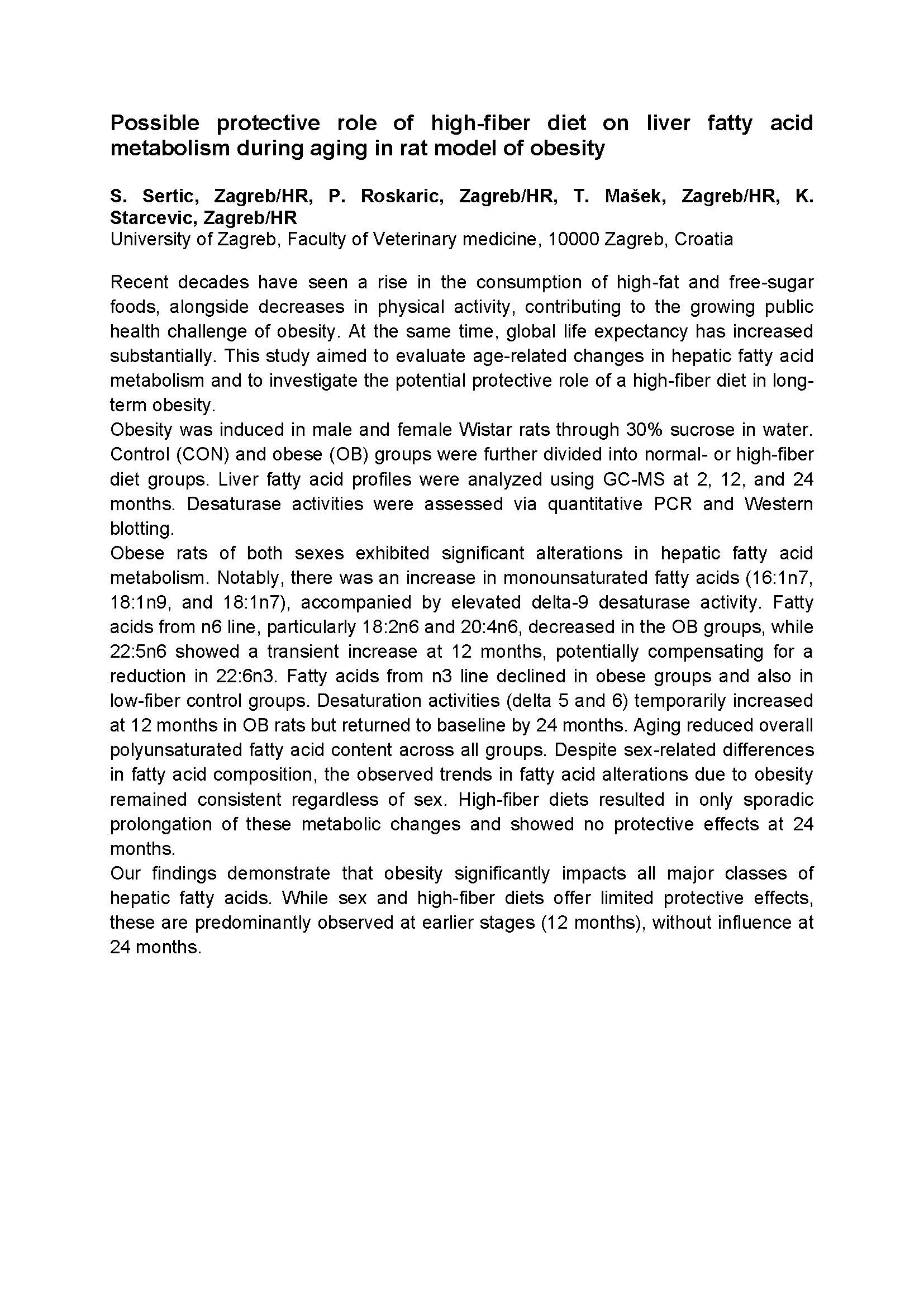Recent decades have seen a rise in the consumption of high-fat and free-sugar foods, alongside decreases in physical activity, contributing to the growing public health challenge of obesity. At the same time, global life expectancy has increased substantially. This study aimed to evaluate age-related changes in hepatic fatty acid metabolism and to investigate the potential protective role of a high-fiber diet in longterm obesity.
Obesity was induced in male and female Wistar rats through 30% sucrose in water. Control (CON) and obese (OB) groups were further divided into normal- or high-fiber diet groups. Liver fatty acid profiles were analyzed using GC-MS at 2, 12, and 24 months. Desaturase activities were assessed via quantitative PCR and Western blotting.
Obese rats of both sexes exhibited significant alterations in hepatic fatty acid metabolism. Notably, there was an increase in monounsaturated fatty acids (16:1n7, 18:1n9, and 18:1n7), accompanied by elevated delta-9 desaturase activity. Fatty acids from n6 line, particularly 18:2n6 and 20:4n6, decreased in the OB groups, while 22:5n6 showed a transient increase at 12 months, potentially compensating for a reduction in 22:6n3. Fatty acids from n3 line declined in obese groups and also in low-fiber control groups. Desaturation activities (delta 5 and 6) temporarily increased at 12 months in OB rats but returned to baseline by 24 months. Aging reduced overall polyunsaturated fatty acid content across all groups. Despite sex-related differences in fatty acid composition, the observed trends in fatty acid alterations due to obesity remained consistent regardless of sex. High-fiber diets resulted in only sporadic prolongation of these metabolic changes and showed no protective effects at 24 months.
Our findings demonstrate that obesity significantly impacts all major classes of hepatic fatty acids. While sex and high-fiber diets offer limited protective effects, these are predominantly observed at earlier stages (12 months), without influence at 24 months.
